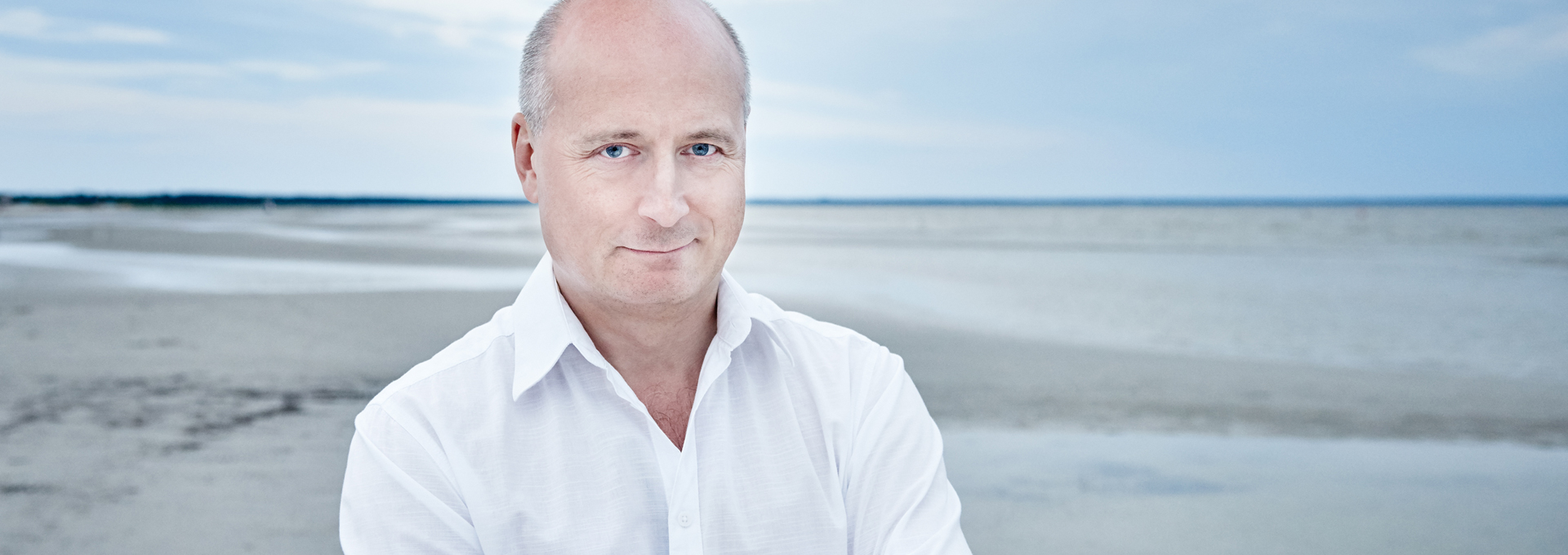
PRESS QUOTES
STAATSKAPELLE BERLIN – NOVEMBER 2014
“It really is a bit odd that Paavo Järvi’s name hasn’t been taken up at all in connection to Simon Rattle’s successor at the Philharmonic. The conductor has, until now, seldom appeared as a guest conductor with the orchestra and only as recently as two years ago was he re-invited to perform with them after a long gap. Perhaps Järvi comes across as too unpretentious, too musical; possibly because everything seems a little bit too easy to him. He sparks the public with reliable enthusiasm; and he has an exceptionally wide repertoire from almost all eras, which he serves with exceptionally good taste.
“This is what was experienced at Monday’s wonderful concert in the Philharmonie with the Staatskapelle. Järvi’s clarity and the orchestra’s silkily soft sound – these complemented the evening beautifully … Mozart’s G Major Piano Concerto feather-lightly performed, with such noble, almost tender restraint like one hardly ever hears from this powerful ensemble … In recent years Järvi has extensively worked on the Schumann Symphonies which he performed as a cycle with the Deutsche Kammerphilharmonie, of which he has been the director for 10 years: this familiarity with the score is felt in every note. Järvi conducts this first symphony resolutely as a work of joyous abandon. Hefty dialogues between the string groups, a lost dream in the slow movement, slapstick humour in the finale– with Paavo Järvi it all sounds so vibrant and colourful, that one looks back on September’s parlous Schumann – Brahms cycle and thinks: I would also really like to hear this with the Philharmonic.” Clemens Haustein, Berliner Zeitung, 19 November 2014
How does he do it? Paavo Järvi is Chief Conductor of the Orchestre de Paris and the Deutsche Kammerphilharmonie Bremen and, from 2015, the NHK Symphony in Tokyo additionally. In the meantime, he has even been Music Director of four symphonic ensembles simultaneously. And of course, the 51-year-old Estonian gives guest performances with the top orchestras around the world, as he does now with the Berlin Staatskapelle. This vast creative output can only be achieved with iron discipline – and an unshakeable self-confidence. In the sold-out Philharmonie Järvi is showing off his maximum effective conducting style which is both elegant and effective
Frederik Hanssen, Der Tagespiegel, 18 Novemer 2014
… The Estonian star of the podium springs and dances, reigns back and carries the music. This is a Schumann, which wants to completely convince you. A Schumann, which does not allow the seated audience to brood on details – because Järvi has already thought about everything. The audience can enthusiastically enjoy. Felix Stephan, Berliner Morgenpost, 19 November 2014
PHILHARMONIA / LONDON – NOVEMBER 2014
… It’s taken me a few years to be convinced that Järvi is a musician of substance, but any conductor who can persuade a modern orchestra to play Haydn at all — let alone with as much rhythmic verve as the Philharmonia invested in his Symphony No 82, The Bear — deserves to be given a lot more than the time of day. I shall definitely be jumping on the Eurostar in January when Järvi (as music director of the Orchestre de Paris) inaugurates the French capital’s by-all-accounts spectacular new Philharmonie concert hall. London desperately needs to catch up.
Richard Morrison, The Times, 18 November 2014
ORCHESTRE DE PARIS OPENING CONCERTS OF 2014 / 15 SEASON:
It is with a touch of sadness that we witnessed the opening season of the Orchestre de Paris, following the announcement in August by Paavo Järvi – via Facebook – that he would not be renewing his contract after the 2015-2016 season … Yes, you can have regrets in the future. But right now, live these outstanding musical experiences which have become customary with Paavo Järvi at the helm of the the Orchestre de Paris.
Rémy Louis, Diapason, 22 September 2014
… In the second half of this opening concert, Paavo Järvi dedicated the programme to French music. A selection of interesting works from our heritage – some of them too often neglected, such as the Symphony No. 3 in G minor Albert Roussel. Composed in 1929-1930, its dynamism makes it immediately attractive, especially as Järvi and the Orchestre de Paris, in complete homogeneity, bring the spontaneity of the Allegro vivo to life, sometimes not hesitating to spice up some irreverent traits along the way …
Masterly at the helm of the Orchestre de Paris, as implacable as the music he leads, Paavo Järvi lives the spirit of Ravel’s masterpiece (La Valse) more fascinatingly than ever. Perfectly demonic, and not hurrying in order to best fire up the composer’s pervasive morbidity, alerting to the imminent catastrophe and all the intoxication of the devastating sensuality, he propels us through this feverish Waltz and all its hallucinations.
Claude Helleu, Alta Musica, 10 September 2014
DEUTSCHE KAMMERPHILHARMONIE / NEW YORK – AUGUST 2014:
“What made this performance extraordinary was Mr. Jarvi’s pliant pacing. As the musicologist Walter Frisch writes, “Brahms favored and himself employed considerable elasticity of tempo,” but few now dare the extremes of early-20th-century conductors like Max Fiedler and Wilhelm Furtwängler. Mr. Jarvi did. It’s a brave strategy. One false move can render whole movements incoherent. When it works, when it sounds spontaneous and innate to the music rather than imposed upon it, symphonic development is raised to another level of drama. With risk came reward in this dark, ultimately triumphant reading from Mr. Jarvi and his virtuosic orchestra.”
David Allen, New York Times, 8 August 2014
PHILHARMONIA / LONDON – JUNE 2014:
“An enthralling outing for Shostakovich 5 in a performance of blazing certainty that made one listen afresh to such a ubiquitous work. Järvi’s thought-through, well prepared and vibrant conducting inspired the Philharmonia to a searing and sensitive response.” Colin Anderson, Classical Source, June 2014